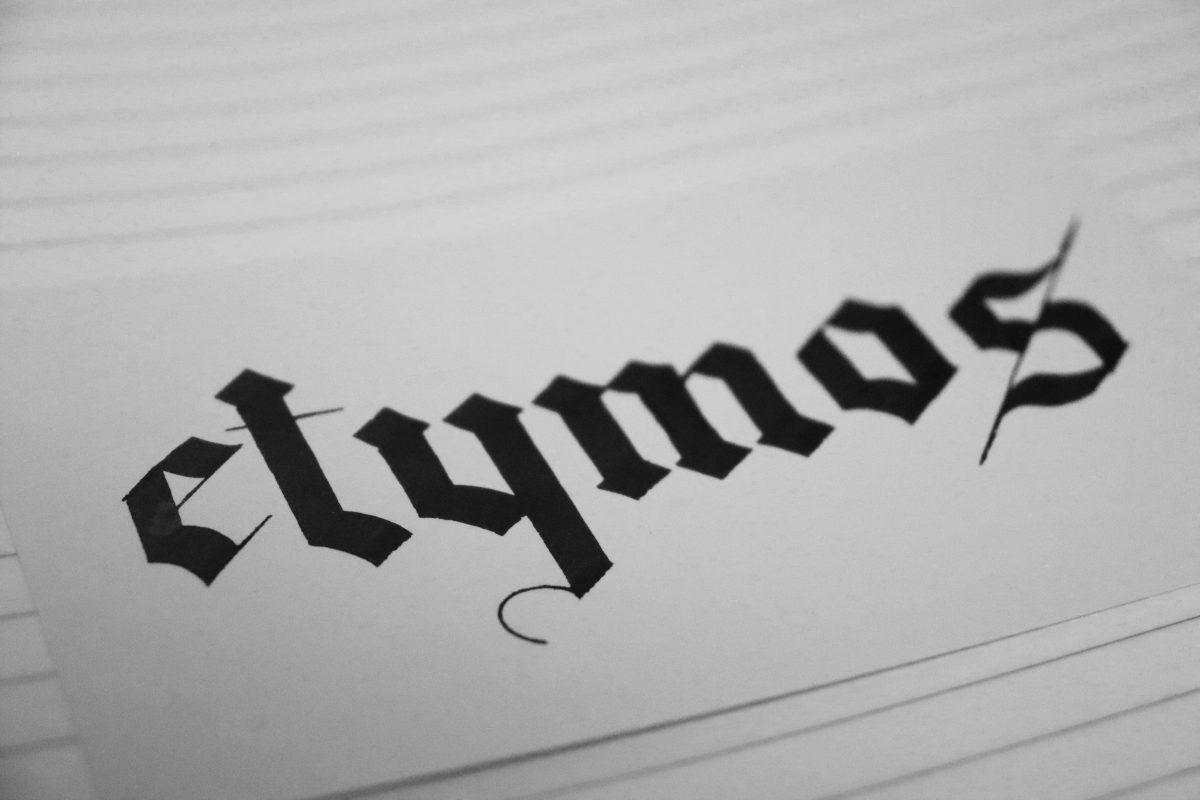One of my favourite etymology facts is that the word ‘utopia’ does not really mean ‘a perfect place’, as we tend to think it does in Modern English. It actually, literally means ‘a place that does not exist’. It comes from the Greek ou, meaning ‘not’, and topos, meaning ‘place’. The word was coined by Thomas More – Henry VIII’s Lord High Chancellor – in the 1500s, and used as the title for his book about an imaginary island that had perfect political, legal, and social systems – the idea being that such a perfect place could not exist.
The overlap between these two meanings of ‘a place that does not exist’ and ‘a perfect place’ comes in part from this original use of the word, but also because the sound of the word ‘utopia’ is the same as the word ‘eutopia’ – which isn’t a word that really exists in Modern English (you can find it here and there, but it’s far from common), but it would mean ‘a perfect place’. This element eu- is another Greek element, which means ‘good’, and it appears in lots of other Modern English words: euphemism, eulogy, euthanasia.
So while we think of a ‘utopia’ as being the opposite of a ‘dystopia’, a ‘utopia’ is actually a place that doesn’t exist, and a ‘eutopia’ is a perfect place, and the opposite of ‘dystopia’, a terrible place, but we might use ‘utopia’ to refer to a ‘eutopia’, as a ‘eutopia’ doesn’t exist.
All of this made me think: what other word pairs made using dys- and eu- are there? Do we sometimes only use one of the pair, like with ‘dystopia’ and ‘eutopia’? What other words can we make using these two elements?
Euphemism and Dysphemism
Nowadays the word ‘euphemism’ is used to mean ‘something that doesn’t mean what it literally means’, for the purpose of implied salacity, but it literally means ‘good speech’ – the idea being that a euphemism is some ‘good speech’ that you would say instead of some ‘bad speech’.
‘Dysphemism’, therefore, must be its opposite: ‘bad speech’. It’s a word you can find in dictionaries but it’s really not very common in Modern English. A euphemism is what you say instead of a dysphemism.
Eugenics and Dysgenics
Eugenics is the idea of controlling the reproduction of humans in order to increase the presence of desirable traits (something generally seen not only as immoral to attempt but also impossible to achieve).
‘Dysgenics’ is a word that exists, but it’s not very common. It isn’t a perfect opposite to ‘eugenics’ – it generally doesn’t mean ‘controlling the reproduction of humans in order to increase the presence of undesirable traits’ (as this is not a meaning that we really need a word for), but it could be used to mean that. It generally means ‘the study of things that have a negative effect on later generations’.
Eulogy and Dyslogy
A eulogy is something said in praise of someone – often after they’ve died.
‘Dyslogy’ is also a word that exists, but which isn’t often used. It means exactly what you’d expect it to mean: ‘dispraise’. (Although, since in Modern English, words ending in -logy are often names of subjects, ‘dyslogy’ could also, funnily, be ‘the study of bad things’.)
Euthanasia and Dysthanasia
‘Euthanasia’ literally means ‘a good death’, from eu-, meaning ‘good’, and thanatos, meaning ‘death’.
‘Dysthanasia’ would therefore mean ‘a bad death’. The word has some usage around the place – it’s not very concrete yet. The word could be particularly useful in fiction – whether a character has a good death or a bad death can drastically change the meaning or course of a story.
Eucalyptus
Not a word you think of as being related to the above, but it comes from eu-, meaning ‘good’, and kalyptos, meaning ‘covered’ (in reference to the buds of the plant).
A word such as ‘dyscalyptic’, therefore, could mean ‘not well covered’ – it could be used as a very indirect way of saying ‘not wearing any clothes’.
Dyspepsia and Eupepsia
‘Dyspepsia’ is a somewhat old-fashioned word for ‘indigestion’. ‘Eupepsia’ is a very rare word meaning the opposite: ‘good digestion’. ‘Dyspeptic’ also means ‘in a bad mood’, so ‘eupeptic’ could mean ‘in a good mood’.
Dysprosium
This chemical element is the original ‘unobtainium’, as ‘dysprosium’ literally means ‘hard to access’. So ‘euprosium’ could be an element that is easy to obtain – or any substance that is very common. ‘Dysprositic’ and ‘euprositic’ could be adjectives for things that are hard and easy to find.
